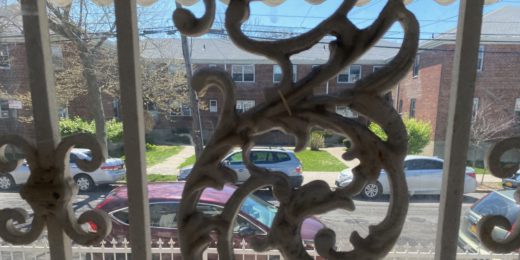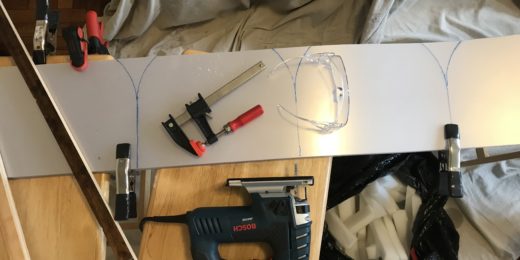I'm Zooming in to my Stanford medical school course from New York, wearing ripped jeans and one of the four shirts I threw in a suitcase before the shelter-in-place took effect.
The professor asks for students to unmute ourselves, and share our clinical experiences in palliative care, the branch of medicine that focuses on alleviating symptoms and minimizing stress for patients living with chronic or life-limiting illness.
I'm asked to talk about times I've been involved in difficult conversations, goals of care planning, the transition to hospice. My mind wanders back to pitch-black mornings earlier this year, to scraping ice off my windshield before driving to my internal medicine rotation. To the days before the pandemic.
I'm with Mr. A during the Chinese New Year. I'm grasping an iPad, while a Mandarin translator on the screen relays the attending physician's words.
It's hard enough to tell someone that they're dying; it's even harder to tell them that they'll die alone, in America, unable to return to their home country. But it seems hardest to break this news in elementary, bite-sized phrases that you can smoothly feed through a translator.
Then I'm back with Mr. J, and his daughters and nephews. I'm wearing a disposable yellow gown and size-small blue gloves. I'm sandwiched between a senior resident and an intern, facing a wall of nervous family members.
The resident is explaining how, if Mr. J eats, he'll likely aspirate -- on food or even his own saliva. Aspirating foreign particles into the lungs may cause bacteria to grow, leading to a potentially-fatal pneumonia, the resident explains. Mr. J stares blankly. The oldest daughter translates the words to Spanish. Then, she asks if he would like to eat, knowing the risk. "¡Claro!" he projects over the rush of high-flow oxygen. Of course. We order him a soft diet, and eventually send him home.
Then I'm with Ms. T. She calls me "ma'am" every morning, as I hold her incredibly frail hand and ask if she's been nauseous, dizzy, chilled, constipated or in any pain overnight.
"I'm weak, ma'am," she tells me every morning. She can barely get out of bed, and she and her family decide to focus on her comfort instead of treatment.
We send her home with hospice care. But before she goes, she cries in front of me. She tells me she's ready to stop treatment, but she isn't ready to die. I mostly nod while she talks. I walk out with tears bursting from my eyes, and rush to the nearest stairwell.
Today, I'm away from the hospitals; but because of this course and because of COVID, I'm often thinking about these patients and so many more. I'm thinking about travel restrictions, pneumonias, personal protective equipment, and dying alone. These aren't new thoughts -- they surfaced with my patients last winter -- but they're intensified now.
As I learn about palliative care, I can't help but contextualize it. In the middle of Queens, I think about how sorely-needed this kind of medicine is, and how hard it must be to provide comfort, when hospitals must limit the number of people that enter each room. When loved ones, chaplains and trusted providers can't be at the bedside.
When I eventually return to the hospital, I hope I get to finish up my palliative care rotation in person. Though I'm grateful for the opportunity to continue my education while clerkships are suspended, some things are just not the same over video-conference.
I can practice delivering bad news, observe strategies for empathic listening and learn about pain management. I can reflect on the patients I've known, and consider how they received bad news, how they felt and what could have been said or done differently. This is a start, but I can't wait to return to the days when I enter a patient's room, reach out my hand, and say "Good morning Ms. T, how's your pain today?"
I can't wait to go back to providing that small bit of comfort, which all people deserve.
Stanford Medicine Unplugged is a forum for students to chronicle their experiences in medical school. The student-penned entries appear on Scope once a week during the academic year; the entire blog series can be found in the Stanford Medicine Unplugged category.
Orly Farber is an undifferentiated third-year medical student from the East Coast. She loves reading and writing about medicine. Her written work has been featured online in STAT News and The Intima, as well as in print in The Boston Globe. In between hospital shifts, you can find Orly running The Dish or making a mess of dishes in her kitchen.
Photo by Shutterstock






